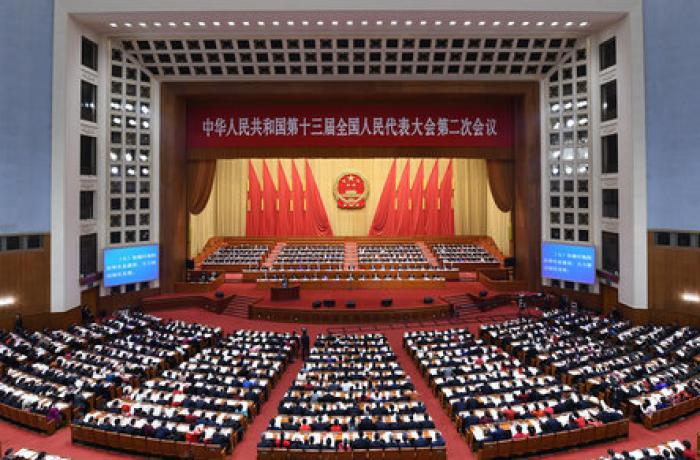
China (Hong Kong): NPC’s proposal to enact new national security legislation should be withdrawn
The ICJ today expressed its grave concern over the National People’s Congress (NPC)’s draft Decision on establishing and improving the legal system and enforcement mechanisms for the Hong Kong Special Administrative Region (HKSAR) to safeguard national security (“the Decision“).
The ICJ called upon the NPC to withdraw the Decision and to protect human rights, including freedom of expression and association, in accordance with its international human rights obligations and its longstanding commitment to respect the right to political participation of the people of Hong Kong.
The call comes after the NPC presented a decision at the third annual session of the 13th NPC on 22 May, 2020 which paves the way for legislation that would, “prevent, stop and punish any act occurring in the HKSAR to split the country, subvert state power, organize and carry out terrorist activities and other behaviours that seriously endanger national security as well as activities of foreign and external forces to interfere in the affairs of the HKSAR” and would allow the central government to set up “security organs” in the territory.
The ICJ stressed that while the precise contents of the proposed National Security Law have not been publicized, the language of the Draft Decision is troubling given how categories of “terrorist activities” and “subversion” have been abused in the past.
“There is a well-substantiated fear that the new security law will be used to suppress freedom of expression and curtail the activities of human rights defender in violation of the rights of the people of Hong Kong guaranteed under its Basic Law and international human rights standards,” said Frederick Rawski, Asia & the Pacific Director of the ICJ. “We have already witnessed, many times over, how other deeply flawed laws like the Public Order Ordinance, have been abused to criminally charge peaceful protesters.”
It is expected that the NPC’s Decision will be added to Annex III of the Basic Law. Under the Article 18 of the Basic Law, Chinese national legislation only has effect in Hong Kong if it is listed in Annex III of the Basic Law and related to defence, foreign affairs or other matters outside the limits of the HKSAR’s autonomy. Once added to Annex III, the law can be promulgated by the Hong Kong Chief Executive by issuing a legal notice in the Government Gazette.
In 2003, the HKSAR government attempted and failed to enact a similar national security bill, after an estimated half a million people took to the streets to oppose the legislation.
“It is especially alarming that the central government has decided to take such a top-down, and anti-democratic approach to imposing this law by bypassing Hong Kong’s Legislative Council. There are no winners from such an approach, which will provoke a massive public response and a return to the unlawful use of force by the police,” said Rawski.
The ICJ stressed that legislation that seeks to address genuine national security concerns must comply with rights protections in the Basic Law, the International Covenant on Civil and Political Rights (ICCPR), which is applicable to Hong Kong, and other international human rights standards and should be subject to genuine public consultation and debate.
The NPC is expected to vote on the resolution at the end of the annual session, likely on May 28, 2020. The NPC decision will delegate the Standing Committee to draft the actual details of the new legislation for Hong Kong, which would then be included in Annex III of Hong Kong’s Basic Law. The new law will be introduced in Hong Kong through either promulgation or local legislation.
Contact
Frederick Rawski, ICJ’s Asia Pacific Regional Director, t: +66 2 619 84 77; e: frederick.rawski(a)icj.org
Boram Jang, ICJ Legal Adviser, Asia & the Pacific Programme, e: boram.jang(a)icj.org
See also
China (Hong Kong): ensure police do not use excessive force against protesters




